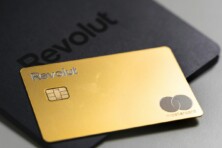Clothes shops, games and toy stores and ice cream vans are set to reap the benefits this summer, as kids savings reach £200 million

British kids store up £200 million in savings: survey. Source: shutterstock.com
According to Starling Bank, piggy banks are filling up as British kids save an average of £150 in the past year.
In fact, 48% of 6-16 year olds have been unable to spend their pocket money, tooth fairy payments and earnings on the things they want in the past year, shoring up healthy reserves according to Starling Bank.
Children in this age group now have an average of £150 saved and are ready to spend in the coming months. The top five planned purchases will be new clothes (30%), sweets and ice cream (26%), toys and games (26%), computer games (20%) and make-up (14%).
Kids have been stashing their cash in piggy banks (37%) and bank accounts (37%), while some have come up with more inventive ways to store it. For instance, 1 in 10 (10%) 6-16 year olds say they keep their money in a secret hiding place, squirrelling it away at the back of wardrobes, between the pages of books, and even in cuddly toys.
The Piggy Bank of England hasn’t just been funded by mum and dad or monetary gifts. One in eight (12%) kids aged 6-16 bolstered their savings by setting up side hustles, selling unwanted toys, games and clothes, or making things to sell online, at village fetes, or stalls outside their homes (5%).
Some children are still stumped when it comes to understanding how much their money can buy them. One in five (20%) under 10s think a holiday costs more than the family house or car, whilst 1 in 7 (14%) believe the same to be true of a games console. One in 20 (5%) under 10s think a Netflix subscription and a pet (5%) is more expensive than their house.
To help children keep track of their money, from today Starling is giving Kite debit card users aged 6-16 access to its banking app. Linked to a parent or guardian’s account, children can check their balance, see transactions and receive real-time spending notifications on their phone or tablet.
We’ve reported that Gen Z investors are putting their savings at risk.
SEE ALSO:









